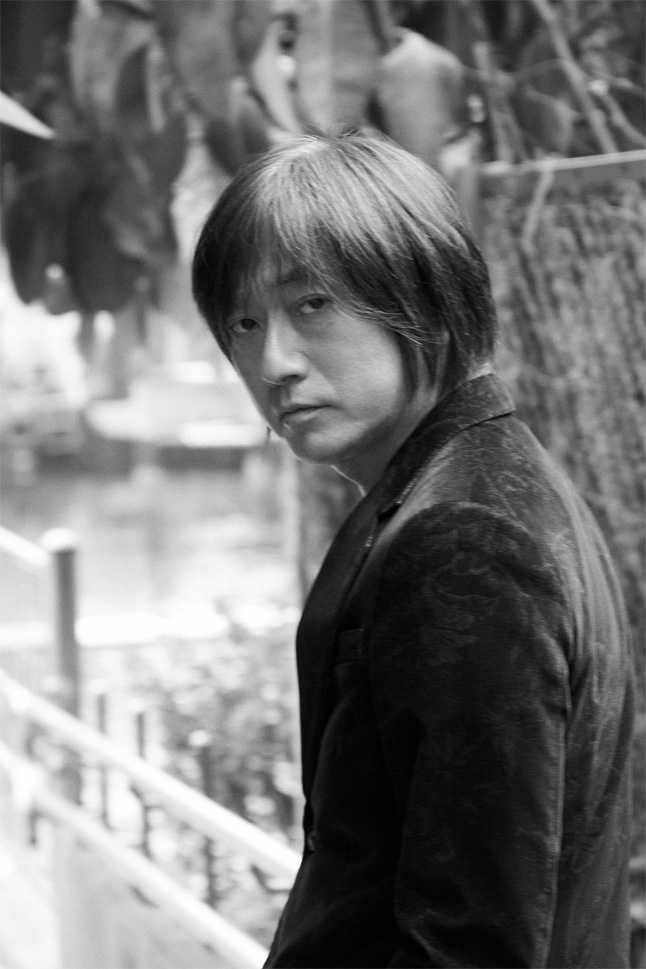
and spaces of expression
“Altruism” and “fluidity”
Takeshi Kobayashi
Ten years after the Great East Japan Earthquake, the disaster-affected areas are faced with the threat of COVID-19, with people expected to refrain from going out.
Unless you are earning your living from agriculture or someother pursuit tied to a specific place, contemporary society and its economic structure can make it hard to come to terms with a stationary lifestyle. Nonetheless, due to uncertainty and fear of infection, many people are stuck at home.
The fluidity of something we cannot see terrifies us. Fears of the fluidity of a virus, a product of nature, is holding back the fluidity associated with human movement.
Meanwhile, the fluidity of something unseen is also increasing in the sense that digital technology now allows for remote working and communication, inspiring new ways of thinking, new feelings, new ideas. These innovations slip through the controls of daily life, which previously seemed obvious to us, bringing about change, stimulating new encounters, and causing other reactions.
The situation resembles that experienced in the disaster-affected areas after the Great East Japan Earthquake.
While planning the Reborn-Art Festival, a significant setback we faced ended up leading to new encounters and unforeseen developments. This was like a “Texture of Life, ” the emergence of a new being, accompanied by a realization of the essence of nature’s fluidity. That feeling was not eternal, but tied to the fluid nature of things.
The art critic Noi Sawaragi calls Japan and Tohoku a “bad place” – a place where generations of people have lived while constantly worrying about frequent floods and the instability of the ground beneath their feet. It is a place steeped in unstable fluidity.
However, perhaps for that very reason – the need to go back to square one over and over, thereby seeing the world from the perspective of the weak – people have learned to distinguish their true aims and priorities. Perhaps the fundamental ability of humanity to build civilizations is itself drawn from fluidity.
The coronavirus crisis has helped clarify the contours of a certain word. That word is "altruism".
While the true definition of this word may be more ambiguous than its literal meaning, it has come to be understood in a broader sense than before and appears to be furthering the realization that we are all connected. You might call this an “altruistic taste.”
I think the idea of altruism goes beyond that of the haves giving something material to the have-nots, beyond that of philanthropy, to encompass the ideal of co-existence. It also goes beyond human society, incorporating the understanding that we too are part of nature; the word conjures up images of a fluid border between the self and others.
Organisms have generally evolved to put the needs of the species above those of the individual, and only humans have come to prioritize individual freedom over the survival of the species. Regardless of whether one sees this as evolutionary outcome or as a result of the limits of capitalism, the emphasis on individual freedom is bringing about an increase in selfishness.
Individual freedom is necessary for evolution, and advances in freedom are now being felt in a number of ways, be it through ethnicity, gender, or physical disability. For that very reason, I believe that we now need to develop an “altruistic taste.”
The realization that we are all part of nature, driven home curiously enough by the coronavirus, has come to function as a driving force for various sustainability concerns.
The emergence of new economic and corporate indicators that take into account data such as the SDGs (*1) and ESG investments (*2) show that the world is changing. Whether it’s changing enough is of course a different matter, but I think art festivals such as this one are necessary to make these changes felt.
Today, a decade after the earthquake, in the midst of the coronavirus era, in a time when we have been hit with the realization that there is little we can really know or control, I believe it is the role of the Reborn-Art Festival to highlight how we are part of and connected to nature and the universe, complement that realization with imagination and creativity, picture it, and joyfully and enjoyably dedicate it to memory.
Altruism and fluidity.
I think these concepts are key to creating new movements and spaces of expression.
*1 … SDGs : Short for the United Nations Sustainable Development Goals. The 17 goals, adopted at the UN Sustainable Development Summit in September2015, are intended to be achieved by 2030.
*2 … Investing that prioritizes companies’ environmental, social, and governance outcomes.

- Takeshi Kobayashi /
-
Musician and the director of AP Bank
Takeshi Kobayashi has produced the albums of many of Japan’s leading artists. He has also written the scores for several films, including Swallowtail and All About Lily Chou-Chou. He established the non-profit organization AP Bank in 2003. Starting with the provision of loans for environmental projects, AP Bank has also organized the outdoor music event ap bank fes, and continues to support regions affected by the Great East Japan Earthquake. Kobayashi also runs a farm KURKKU FIELDS in Kisarazu City, Chiba Prefecture, and is developing a project that aims to visualize the circulation of food. He has served as the chair of the executive committee and production committee for the Reborn Art Festival, which supports reconstruction efforts for the Great East Japan Earthquake. For the Reborn Art Festival in 2017, he co-produced the installation work D.E.A.U together with visual design studio WOW and balloon artist DAISY BALLOON.










